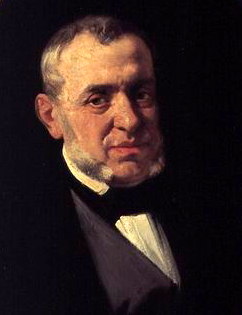
Il giuramento (The Oath) is an opera in three acts by Italian composer Saverio Mercadante. The libretto, by Gaetano Rossi, is based on Victor Hugo's 1835 play Angelo, Tyrant of Padua . (This is the same source as Arrigo Boito, under the pseudonym of Tobia Gorrio, was to use for his libretto for Amilcare Ponchielli's La Gioconda ). [1]
Contents
- Performance history
- 19th century
- 20th century and beyond
- Roles
- Synopsis
- Recordings
- References
- Further reading
- External links
The opera was first performed at La Scala, Milan, on 11 March 1837 and was "quickly taken up by other theatres throughout Italy". [1] Within a year, it was staged in Vienna (April 1838) and later appeared in many European cities including London (Her Majesty's Theatre 27 June 1840) and Paris (1858) and in New York (February 1848).
As has been noted by Colleen Fay, there were aspects of this work which moved Italian opera in a new direction:
Its taut dramatic structure and vivid musical scene-painting set it apart from the operas of his day ... Not only do we hear in its music a reliable Italian lyricism, but also the early moves away from ornamentation for its own sake. Mercadante uses the orchestra not as a pale accompaniment to dramatic action, but as a full partner in the drama. [2]
